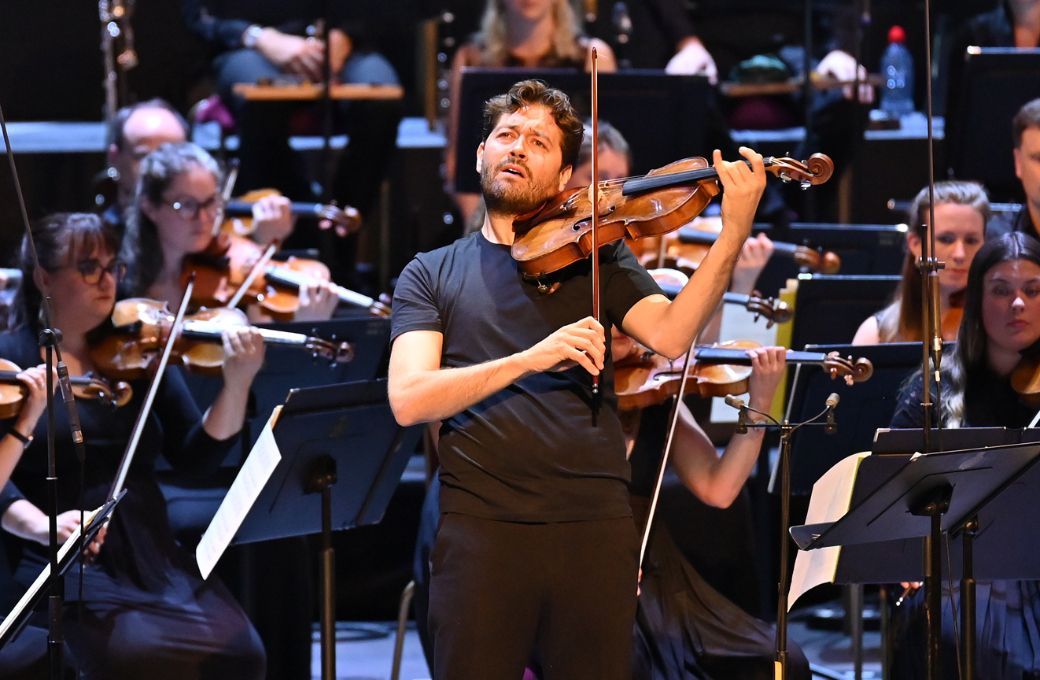Given its lowly status among string instruments, the viola has often been overlooked by earlier writers of concertos. Not by contemporary ones though. Sir James MacMillan’s piece, written in 2013 and played in this BBC Philharmonic concert by its dedicatee, Lawrence Power, is a useful addition to a repertory hitherto shorn of opportunities for display.

MacMillan instinctively knows that pitting this dark instrument against the full orchestra would spell disaster. His solution is twofold: the viola is sometimes set against a quartet of two other violas and two cellos, creating an archaic quality linking the past with the present, and then by having high-tuned percussion at the other end of the aural spectrum. When the full orchestra is deployed, and there are a number of primal outcries such as at the start of the central slow movement, the viola is silent. In listening to this performance with Juanjo Mena in charge, I was reminded of the composer’s assertion that “I’m like a child in a toyshop with the orchestra”. Unusual effects constantly caught my ear, especially in the final movement, like the bluesy brass interjections or when a flute solo echoed the Japanese tradition of flutter-tonguing in the shakuhachi or the propulsion provided by repeated and abrupt string chords. At one point, where the solo instrument works in concert with the string quartet, it was almost like hearing a swarm of bees.
Power was a warmly expressive soloist, not least in the slow movement with its resonances of the English pastoral tradition and indeed reminiscences of Walton too. His dusky-toned yet lithe and athletic playing gave the lie to any notion that the viola lacks an individual voice. His encore, a carillon by Westhoff, not only linked up with the final orchestral peroration in which tubular bells are prominent, but also with the orchestra’s opening work, the Bach-Webern Ricercar a 6. This original “searching” by Bach in order to come up with a six-part fugue is essentially an academic exercise. Mena shaped this performance sympathetically, but without much obvious commitment.
I wish I could be more enthusiastic about his view of Bruckner’s Sixth Symphony, of which he made a recording while still this orchestra’s principal conductor. The problems always start with establishing the nature of the work. Bruckner referred to it as “die Keckste”, producing a homophonic rhyme with “die Sechste”. But for the German adjective, here in its grammatically superlative form, there is no standard translation. It can be anything from cheeky, jaunty, pert, saucy or audacious, bold, daring or, my own preference, forward or forthright. Therein lies an essential ambiguity. The symphony does not start with a typical tremolo and there is no misterioso. Yet unless there is enough variation in the way the material is treated, the questions that Bruckner poses all end up having the same answer.
Mena’s flowing and elegant beat told its own story. This was a very lyrical, even languid, reading. It made its mark in the soft and gentle passages of the Adagio, more psalmodic than strictly solemn (as marked), yet Mena had a fine ear for the magical effect of burbling horns and whispering strings at its close. Transitions were neatly negotiated but here, as elsewhere, there was little probing.
Two technical shortcomings stood out. The strings frequently failed to summon up the weight, the sheer heft, that is needed to create the organ-like richness of sound. More particularly, the brass sections were regularly too loud, sometimes painfully so, and the trumpets at the start of the symphony uncomfortably strident. Majesty does not go hand-in-hand with unbridled over-assertiveness.


